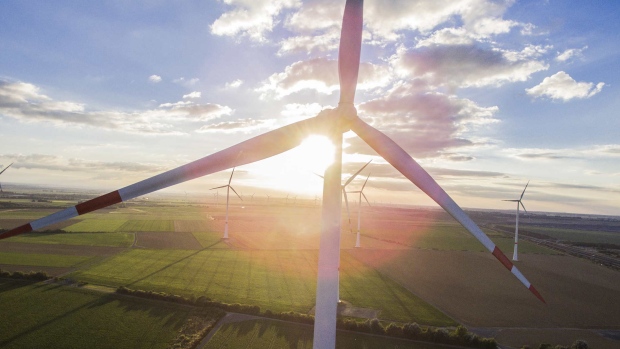Mar 15, 2019
ETF competition means ethical investing has never been cheaper
, Bloomberg News

The price war has come to socially conscious investing.
BlackRock Inc., Vanguard Group and Deutsche Bank AG’s DWS Group have slashed the fee for exchange-traded funds that track companies performing well on environmental, social and governance criteria. ESG funds created by this trio and other issuers over the last year charge an average US$2 for every US$1,000 invested, half the median fee of these funds in the U.S., according to data compiled by Bloomberg.
These mega money managers have a simple goal: assets. Sustainable funds -- historically more expensive than their peers -- have struggled to compete with traditional offerings, managing just US$9 billion of the almost US$4 trillion in U.S. ETFs. But as the bulk of investors seek funds charging US$2 or less and fees fall toward zero, issuers are rebranding ESG strategies as cheap, broad funds.
It seems to be working. ESG ETFs have already attracted US$1.3 billion in new assets so far this year, more than half what the funds took in during 2018.
“If you lower fees and position ESG as a core solution, it’s going to attract assets,” said Todd Kowalski, director of business development for indexes at Morningstar. That creates a virtuous cycle: “Any time you get to scale, fees are naturally going to decrease,” he said.
Fee Fears
Lower fees are increasingly a matter of survival for ESG funds. Gone are the days when asset managers could justify higher costs by pointing to the larger research demands of socially responsible funds and uncertainty about asset growth. Funds that fail to lure inflows are starting to close, with two that charged US$5 and US$7.50 respectively slated to shutter.
Issuers have taken note. Vanguard fired the first shot, making its ESG U.S. Stock ETF the lowest-cost ESG ETF focused on equities in the U.S. when it started trading in September. It charges just US$1.20 for every US$1,000 invested, helping assets grow 60 per cent to US$273 million this month. Managers have since lowered costs even further.
DWS Group debuted a fund charging just US$1 in New York last week. Now the cheapest for ESG stocks, the Xtrackers MSCI USA ESG Leaders Equity ETF, or USSG, is already the third-largest ESG fund with US$865 million after an investment from Ilmarinen, a Finnish pension insurance company that covers more than 1.1 million people. BlackRock matched that price this week with an ETF listed in London.
BlackRock -- the world’s largest ETF issuer -- has absorbed about US$850 million globally into its ESG ETFs this year, compared to about US$3 billion for all of 2018, according to data from the money manager.
“Investors want to do good, but they’re also investors,” said Linda Zhang, chief executive officer and founder of Purview Investments. “In order to grow you have to offer a product that satisfies both return, risk and impact -- all the three elements. By having a high fee there, it’s just going to hurt your performance metrics.”
Issuers have struggled to shake a perception that ESG products will underperform conventional funds, despite signs that the new model of broad funds are delivering similar returns. Vanguard’s U.S. fund has added 13 per cent this year, beating its own S&P 500-focused ETF.
The sustainable funds launched by the big asset managers at lower fees don’t necessarily create the same impact as some of the higher fee funds, Purview’s Zhang said.
What’s Inside?
BlackRock says its ESG ETFs are cheaper when they rely on simple screens to avoid fossil fuels or weapons, rather than strategies that require more research. When it packaged its ESG ETFs into a new suite last year, the firm said it was designed to be low-cost so it could become a simple building block for an investor’s portfolio, similar to its other core offerings.
“Across the global iShares ETF line-up, our sustainable funds are priced either in line with or below the rest of the ETF range,” BlackRock spokesman Ed Sweeney said in a statement.
Socially conscious investors have however been willing to accept fees that are about double the new low-cost ETFs in the past. The iShares MSCI KLD 400 Social ETF, the largest ESG ETF with US$1.3 billion, charges US$2.50 for every US$1,000 invested. That’s still well below the average cost of an ESG fund.
Vanguard is betting that investors will focus on finding a fund that aligns with their values, according to Rich Powers, head of ETF product management at Vanguard. While the firm’s ESG ETF is cheap at US$1.20, it still costs more than the 30 cents the firm requires for its US$109 billion total stock-market ETF.
“We price our funds at what they cost us to operate,” Powers said. “Investors are increasingly focused on lower cost investing as a starting point in their investment analysis process. But then, after that, it’s looking at what’s underneath the hood.”


